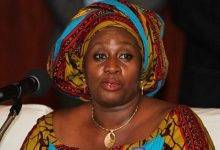
The Institute of Economic Affairs has called for a comprehensive debt management strategy to help bring some relief to the country’s debt service burden.
The country’s debt levels has surpassed the dreaded 70 per cent debt to Gross Domestic Product (GDP) mark, a situation which has compelled the International Monetary Fund and the World Bank to classify Ghana as a highly debt distress country.
The nation presently spends 56 per cent of tax revenue to settle interest payments.
The Director of Research at IEA, Dr John Kwakye, said Ghana’s debt may remain above the threshold for several more years to come.
“As we stated above, in 2021, we will be using as much as 56 per cent of our tax revenue to pay interest on our debt. And the ratio could rise over the medium term, especially if we stick to the unambitious revenue targets. Interest payments could actually swamp the budget in the coming year if appropriate measures are not taken”, he said.
“While a comprehensive debt management strategy helps bring some relief to the debt service burden, raising revenue while containing non-capital expenditure is the best way to ease the financial burden of debt service on a more durable basis,” he added.
Ghana’s debt as of May 2021 stood at ¢334.6 billion, approximately at 77 per cent of GDP.
This is compared with ¢291.6 billion in 2020, ¢218.2 billion in 2019, ¢173.1 billion in 2018, ¢142.5 billion in 2017 and ¢122.2 billion in 2016.
The IEA also expressed worry about the overconcentration of expenditure on consumption as well as the country’s low tax revenue-to GDP, a situation that it believes will constrain the economy to a low growth trajectory and slow development, going forward.
He therefore called for efforts to raise revenue by plugging the numerous loopholes in the tax system as well as a serious expenditure rationalisation by curtailing recurrent expenditure or consumption to create space for more investment expenditure.
Recurrent expenditure in 2021 was estimated at ¢109.9 billion and that mainly went into salaries and interest payment, while capital expenditure was estimated at only ¢17.6 billion.
Dr John Kwakye said “revenue mobilisation still remains a serious challenge in Ghana. But this challenge is not totally unsurmountable. We only have to do things a bit differently, as continuing to do the same things would not give us different results. The tax revenue and total revenue projections for 2021 are about ¢56 billion ($9.7bn) and ¢72 billion ($12.4) respectively. These are peanuts to say the least. In GDP terms, the tax and total revenue are 12.7 per cent and 16.5 per cent respectively. These ratios compare unfavourably with our middle-income peer’s average of 25 per cent and 30 per cent.”
He added that “we need to increase our revenue effort by widening the tax net and plugging the numerous loopholes. The 2021 budget admitted that tax underreporting and tax evasion abound in the extractives sector, among others. Let us remind ourselves about some of these loopholes that need to be addressed as a matter of urgency.”
The IEA according to myjoyonline.come wants clear classification of energy and financial costs
The country’s fiscal or financing gap has also been a subject of debate between the government and the opposition.
Government and the opposition have argued nosily about whether reported deficits include or exclude these costs.
The IEA wants a clear classification of whether the energy and financial costs are part of fiscal deficit, adding, fiscal transparency and credibility require that these costs are properly accounted for.
Dr Kwakye said the same treatment should be accorded the debt, saying “this will prevent the constant unproductive arguments between government and the opposition regarding the true level of the deficit – and debt.”







